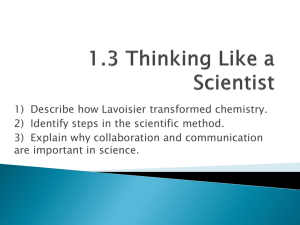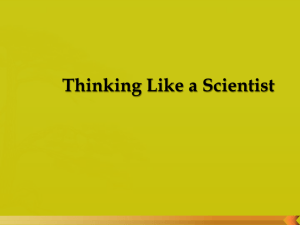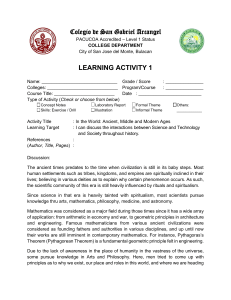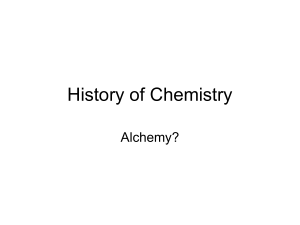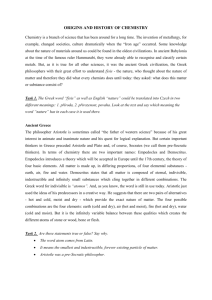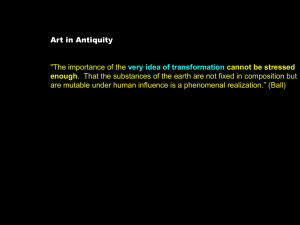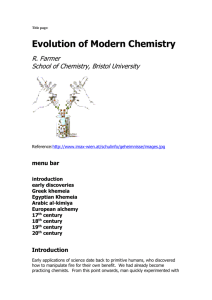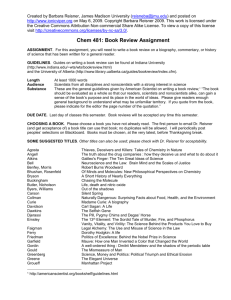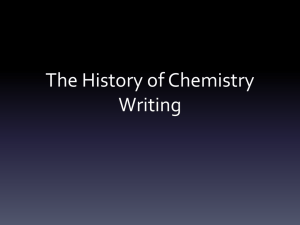The Scientific Method
advertisement
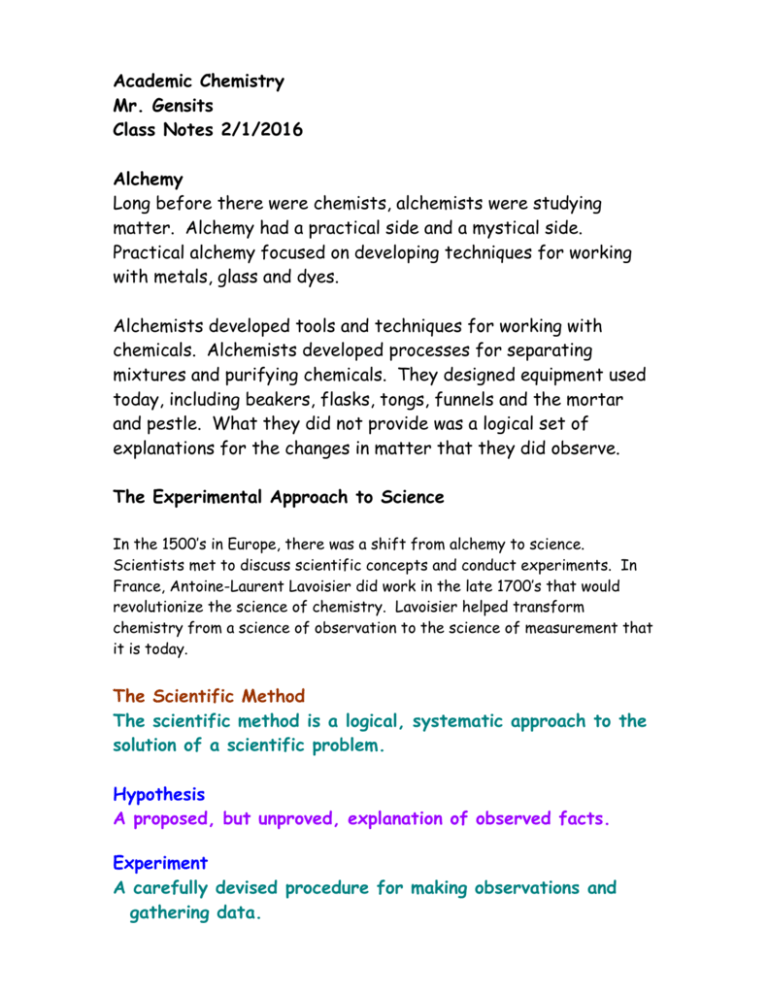
Academic Chemistry Mr. Gensits Class Notes 2/1/2016 Alchemy Long before there were chemists, alchemists were studying matter. Alchemy had a practical side and a mystical side. Practical alchemy focused on developing techniques for working with metals, glass and dyes. Alchemists developed tools and techniques for working with chemicals. Alchemists developed processes for separating mixtures and purifying chemicals. They designed equipment used today, including beakers, flasks, tongs, funnels and the mortar and pestle. What they did not provide was a logical set of explanations for the changes in matter that they did observe. The Experimental Approach to Science In the 1500’s in Europe, there was a shift from alchemy to science. Scientists met to discuss scientific concepts and conduct experiments. In France, Antoine-Laurent Lavoisier did work in the late 1700’s that would revolutionize the science of chemistry. Lavoisier helped transform chemistry from a science of observation to the science of measurement that it is today. The Scientific Method The scientific method is a logical, systematic approach to the solution of a scientific problem. Hypothesis A proposed, but unproved, explanation of observed facts. Experiment A carefully devised procedure for making observations and gathering data. An experiment is a procedure that is used to test a hypothesis or theory. For the results of an experiment to be accepted, the experiment must produce the same result no matter how many times it is repeated, or by whom. Manipulated (Independent) Variable – the variable that you change during an experiment Responding (Dependent) Variable – the variable that is observed during an experiment. Observation A fact or occurrence that is noticed, usually as an early part of the scientific method. Qualitative Observation An observation that describes phenomena without the use of measurement. Quantitative Observation An observation that involves a numerical measurement. Scientific Theory A logical and time-tested explanation for a broad set of observations. Once a hypothesis meets the test of repeated experimentaion, it may be raised to a higher level of ideas – a theory. Scientific Law A concise statement that summarizes the results of many observations and experiments. Scientific laws describe natural phenomena. Scientific theories attempt to explain phenomena.
